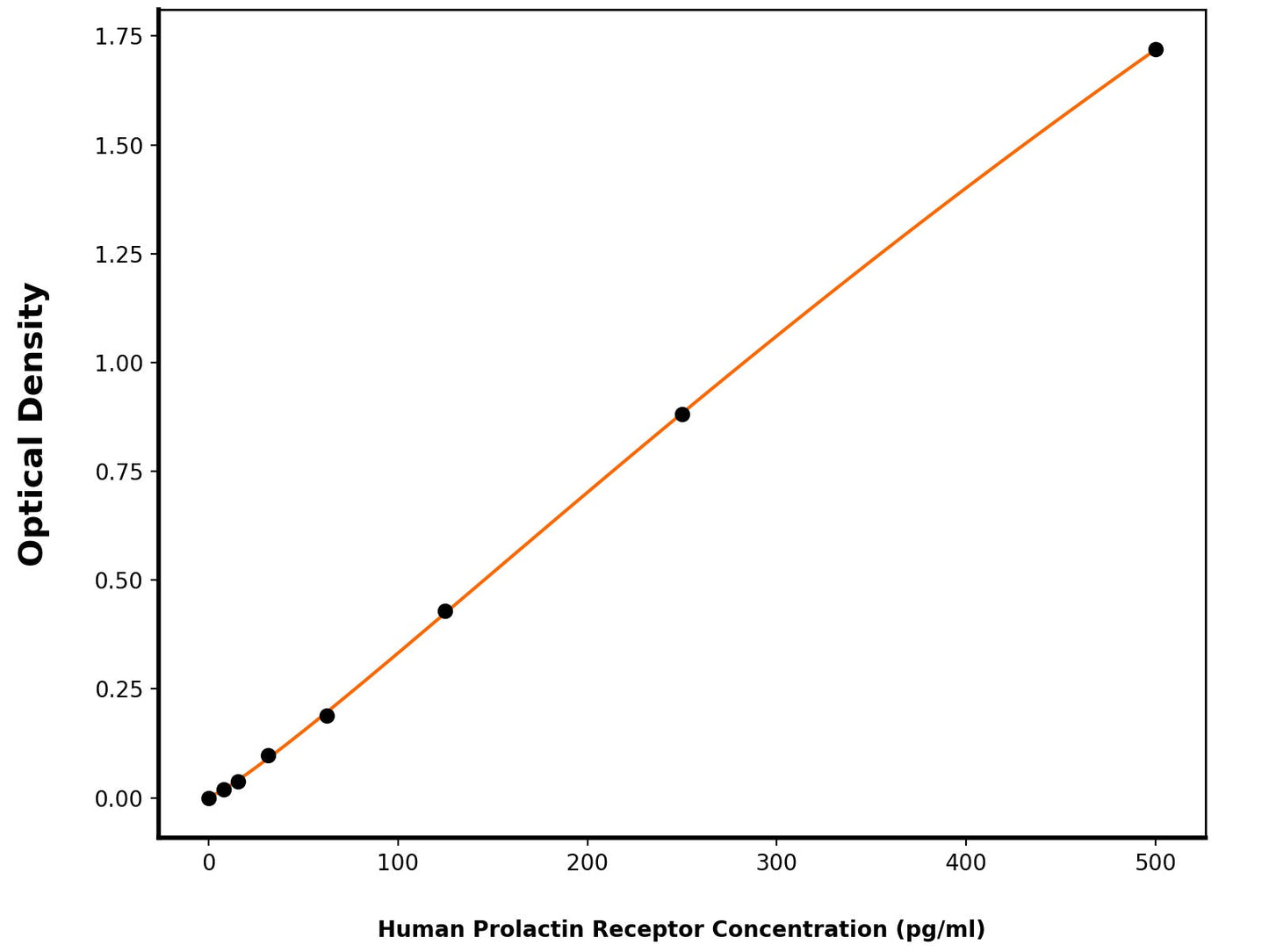1
/
of
1
Human Prolactin Receptor (PRLR) ELISA Kit
Human Prolactin Receptor (PRLR) ELISA Kit
This ELISA kit is designed to detect Human Prolactin Receptor (Human PRLR). The assay plate has been pre-coated with mouse anti-Human Prolactin Receptor monoclonal antibody. When the sample containing Prolactin Receptor is added to the plate, it binds to the antibodies coated on the wells. Then, a horseradish peroxidase conjugated mouse anti-Human Prolactin Receptor Antibody is added to the wells and binds to Prolactin Receptor in the sample. After washing the wells, substrate solutions are added, and the color intensity is directly proportional to the amount of Human Prolactin Receptor present. The reaction is stopped by adding an acidic stop solution, and the absorbance is measured at 450 nm.
Catalog No:
BPE057
Regular price
$754.00 USD
Regular price
$580.00 USD
Sale price
$754.00 USD
Unit price
/
per
2 weeks
Couldn't load pickup availability
Product Details
Species Reactivity
Human
Sensitivity
1.64 pg/mL
Detection Range
7.81-500 pg/mL
Sample Type
Serum, plasma, cell culture supernates
Incubation(s)
3.5 hour(s)
Research Areas
Signal Transduction
Background
Prolactin receptor (PRLR) is a single-pass transmembrane receptor belonging to the type â… cytokine receptor superfamily, and contains two fibronectin type-â…¢ domains. All class 1 ligands activate their respective receptors by clustering mechanisms. Ligand binding results in the transmembrane PRLR dimerization, followed by phosphorylation and activation of the molecules involved in the signaling pathways, such as Jak-STAT, Ras/Raf/MAPK. The PRLR contains no intrinsic tyrosine kinase cytoplasmic domain but associates with a cytoplasmic tyrosine kinase, JAK2. PRLR mainly serves as the receptor for the pituitary hormone prolactin (PRL), a secreted hormone that affects reproduction and homeostasis in vertebrates. PRLR can be regulated by an interplay of two different mechanisms, PRL or ovarian steroid hormones independently or in combination in a tissue-specific manner. The role of the hormone prolactin (PRL) in the pathogenesis of breast cancer is mediated by its cognate receptor (PRLR). Ubiquitin-dependent degradation of the PRLR that negatively regulates PRL signaling is triggered by PRL-mediated phosphorylation of PRLR on Ser349 followed by the recruitment of the beta-transducin repeats-containing protein (beta-TrCP) ubiquitin-protein isopeptide ligase. which altered PRLR stability may directly influence the pathogenesis of breast cancer.
Shipping Condition
Shipped on cold gel packs.
Storage Condition and Shelf Life
This product can be stored at 2-8C.
Analyte
Prolactin receptor
Regulatory Status
For Research Use Only

